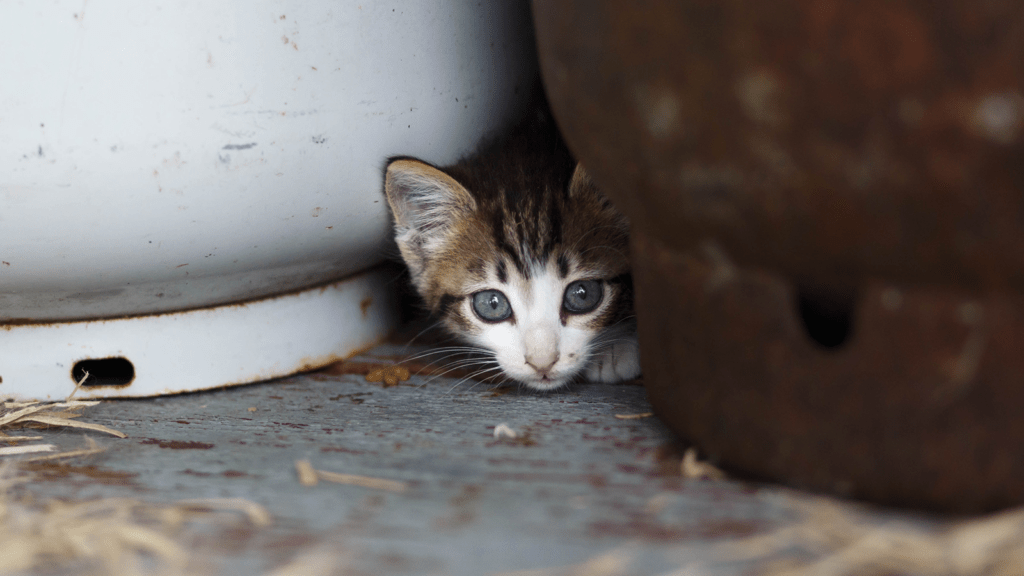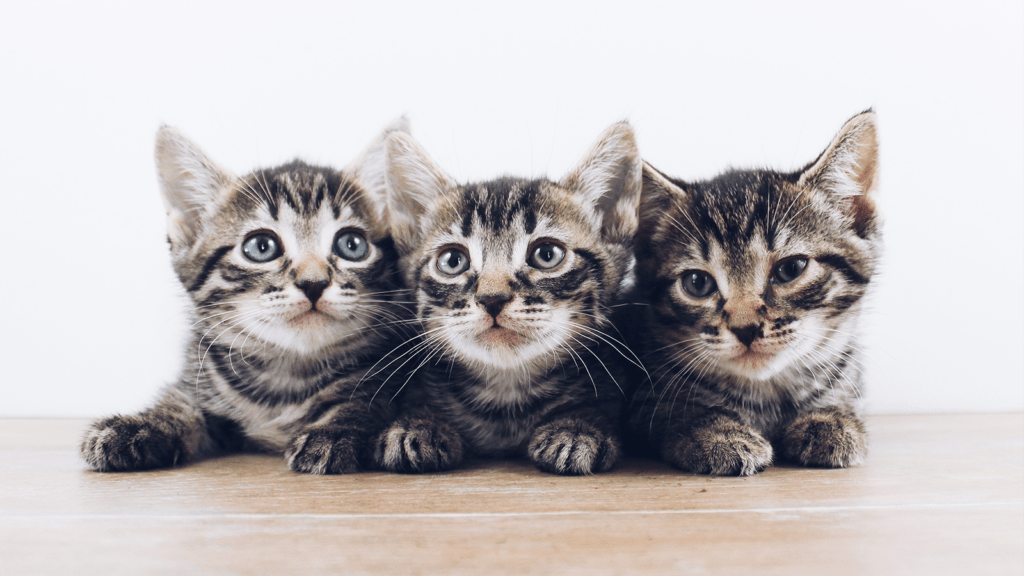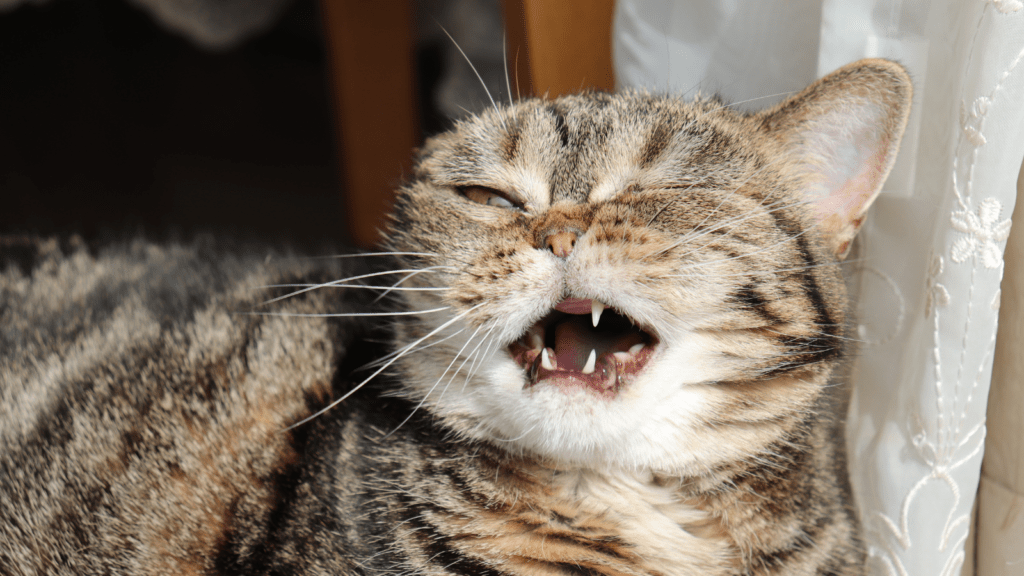
Why Is My Cat Sneezing?
Ah-chu! Bless-mew! Sneezing fits are no fun. Sure, sneezing is a very natural function, but excessive sneezing could be a sign of something more. There are several reasons why your cat might be sneezing, from the regular nose tickle or allergies to foreign objects or more serious health concerns. Here are the reasons your cat is sneezing and when to know if you should contact a veterinarian.
9 Reasons Your Cat Is Sneezing
1. Normal Regular Sneezing
If your cat is sneezing a lot, but there are no other symptoms, and the sneeze attack doesn’t last very long, then it’s likely a common symptom of a nose tickle caused by fuzz or dust.
2. Upper Respiratory Infection (URIs)
Feline Herpes Virus (FHV) is a common upper respiratory infection (URI) that impacts the nasal cavity and can cause sneezing. Studies show that 97% of cats have been exposed to Feline Herpesvirus. Feline Immunodeficiency Virus (FIV) positive cats also make them more prone to upper respiratory infections or sinus infections.
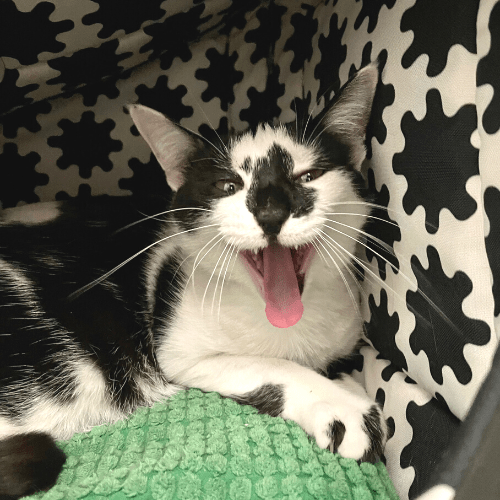
3. Strong Smell Or External Irritants
Have you cleaned your cat litter recently? How about that pee spot from the other day? A cat’s sense of smell is better than a human’s and an integral part of their lifestyle. Look for irritants like mold, dust, smoke, or harsh chemicals, which can cause sneezing in cats.
4. Allergies
Allergies are a common cause of sneezing cats, runny nose, and other respiratory symptoms. Cats sneeze from allergies just like humans do, and the occasional sneeze during an allergy attack is normal.
5. Bacterial Infections or Fungal Infections
A sneezing cat may have a fungal infection or a bacterial infection, which oftentimes impacts their respiratory system. Yellow or green discharge could be a sign of bacterial infections. Other viral or bacterial infections, like Bordetella, can cause persistent sneezing.
6. Dental Disease
Feline Calicivirus can cause upper respiratory infections or oral dental disease in cats. If your cat’s symptoms are frequent sneezing and yellow or green nasal discharge, it could be a symptom of dental disease.
7. Foreign Object
If there are no other symptoms but you notice repeated sneezing, check your cat’s nasal passages. An obstructed nasal passage could explain many causes of sneezing. Cat’s noses are close to the floor, and if your cat inhales dust, hair, or mold.
8. Vaccines
Reactions from vaccinations may cause mild symptoms and cat sneezing. Vaccinations are important, so pet owners should consider the benefits of vaccinations and their cat’s health. However, if there are abnormal reactions after your cat is vaccinated and sneezing persists, contact your vet.
9. Other Health Issues
Chronic Rhinitis, known as Hay Fever, causes inflammation in the cat’s nose lining and can exhibit symptoms of upper respiratory infections. If your cat sneezing has other symptoms, there could be other underlying conditions, like nasal tumors or cancer. Many health problems impact a cat’s immune system and make them prone to cold-like symptoms.
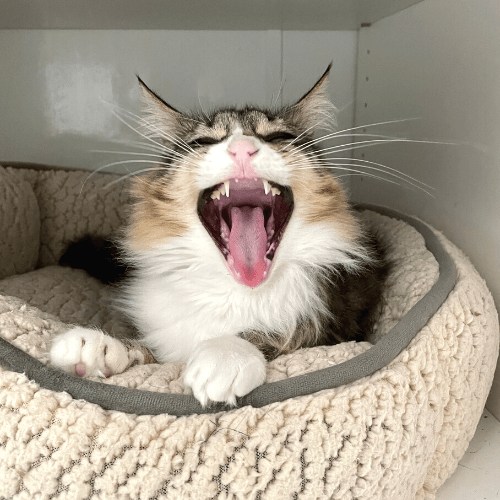
Sneezing Treatment And Prevention
In most cases, cat sneezing is just a cold, allergies, or dust. You can prevent cat sneezing and an upper respiratory infection through regular preventative care methods. Here are four ways how to stop a sneezing fit in cats.
- Clean the environment. Vacuum and clean regularly to reduce dust, allergens, or flea mites in the home. Change air filters or use an air purifier to improve the air quality of your cat. Clean their bedding, litter, and food bowls regularly, as well as the areas they spend time in. Doing this helps prevent the spread of germs and bacteria that can cause upper respiratory infections.
- Provide healthy nutrition. Make sure your cat is getting the proper nutrients to support a healthy immune system. Young cats and older cats both benefit from quality nutrition. Feeding them high-quality wet food with plenty of vitamins and minerals helps keep their body strong enough to fight off illness. Avoid giving them processed foods as these may be lacking essential nutrients for a strong immune system. If your cat has the Feline Herpes Virus or other respiratory symptoms, adding supplements to your cat’s food can help boost their immune system. Here are a few things we recommend for cat care.
- Clean and physically inspect the kitty. Cats can get into mischief and oftentimes have scratches, bumps, or lumps that we find later. In addition to a physical inspection, tracking your cat’s weight, energy levels, and appetite can help you identify issues early on. Try keeping a journal or log of your cat’s activity and weight.
- Provide a humidifier. Using a humidifier can be a helpful treatment for a cat with a respiratory virus. Humidifiers help keep your cat’s nasal passages moist, making it easier for cats to breathe and reduce congestion. They also help to break down mucus that can accumulate in the lungs, helping to clear the airways.
- Send pictures to your vet. Many vets will allow you to send pictures or videos of your cat’s symptoms. This option makes erroring on the side of caution much easier because no one likes to take a cat to the vet!
If the cat’s sneezing continues, your vet may prescribe antihistamines and decongestants, eye and nose drops, or nasal lavage. If your cat suffers from severe symptoms, they may also prescribe something to reduce severe inflammation or other serious complications.
When to see a Vet
If you are noticing chronic sneezing and the symptoms persist beyond a few days, you should consider contacting your veterinarian. Other signs you should contact your vet would be worsening symptoms, excessive nasal discharge, loss of appetite, weight loss, or trouble breathing.
It’s also a good idea to take your cat to a vet if you’re adopting from animal shelters. Shelter cats are often exposed to respiratory viruses, plus many cats exhibit respiratory symptoms simply from a major change in environment. However, many of the sneezing cat’s symptoms will go away on their own within two weeks. Using supplements like L-lysine can also help boost your cat’s immune system to prevent common symptoms.
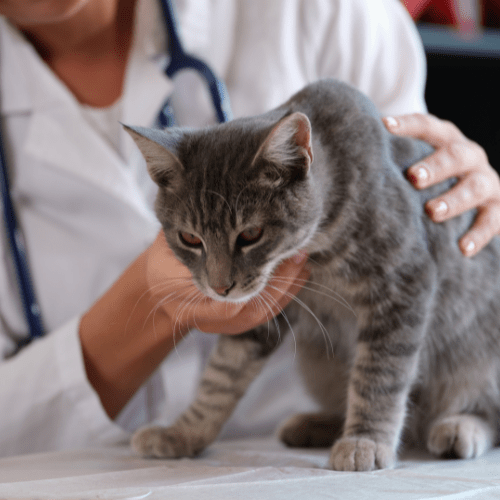
It is usually better to error on the side of caution and prevention. Pet parents should consider taking their cats in for a vet visit if symptoms worsen or persist.
Cat Sneezes Conclusion
There are many reasons why your feline friend may have a sneezing fit, but most causes of cats sneezing are only mild symptoms from natural causes such as dust or allergies. However, if your cat sneezes chronically, it would be a good idea to contact a veterinarian to rule out more serious health concerns, such as feline calicivirus, feline herpesvirus, or other frequent viral infections.

